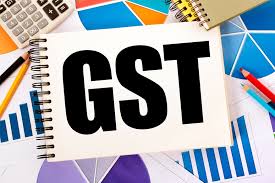MSMEs fear harassment, misuse of power by officials under new GST regime
Until now, the tax officials were required to issue show-cause notices before initiating recovery proceedings.
The Central Board of Indirect Taxes and Customs (CBIC) recently notified January 1, 2022, as the effective date for implementation of this new rule. Several other changes will also come into effect from that day. The changes meant to tighten the tax regime were announced in the Union Budget for 2021-22. The amended rules were notified only on December 21.
The move is aimed at curbing instances of fake billing by the buyers whereby the sellers show high sales under the GSTR-1. Such practices allow buyers to claim input tax credits (ITC) and underreport sales in the GSTR-3B form to reduce their GST liability.
The original Central GST Act provided for forms GSTR-1 for details of outward supplies, GSTR-2 for inward supplies data or purchases made, and GSTR-3, a document containing electronically collated details of all transactions in a particular month, filed in GSTR-1 and GSTR-2, and tax liability.
However, associations representing the micro, small and medium enterprises (MSMEs) and legal experts fear that the new stricter form of GST may lead to misuse of power and harassment by the authorities.
They observed that the incoming stricter GST rules would not only increase the compliances and litigations for the MSMEs but will also lead to harassment at the hands of tax authorities.
Fear of harassment, misuse of power
Rakesh Chhabra, Vice President, Federation of Indian Micro and Small & Medium Enterprises (FISME) observed that businesses will face harassment by the tax authorities even in the instances wherein an honest clerical error has occurred causing a mismatch in the forms. This, he said, would ultimately lead to expensive court proceedings forcing the sellers to shut shop.
"The government itself has been having problems with its tax portal for so many months. Can a clerical error not happen by the MSMEs?" questioned Chhabra.
An MSME entrepreneur from Coimbatore who did not wish to be named said, "The government has been saying so many things about bringing ease of doing businesses. But this is just the opposite of it, more like inspector raj."
The entrepreneur feared that in the instance of mismatch, the tax authorities will not give notice and instead arrive at the factories unannounced to harass.
Vinod Kumar, president of India SME Forum said that the incoming rule would give exclusive power to the officials in the GST department because the new system does not delve into the reasons behind the mismatch in the forms.
He explained that there are several instances wherein the buyers return the products to the seller and demand a refund. However, the same would not reflect in the form GSTR-3B which had originally captured the transaction. This, he said, would result in a mismatch in the two forms which would ultimately invite the tax authorities despite no fault on the part of the seller.
"So while the seller has to give a refund to the buyer, he will also be forced to give the GST on the same transaction," said Kumar.
Right to hearing
Sameer Jain, Managing Partner, PSL Advocates & Solicitors said, "The mismatch can be for various reasons, some of which are explainable. Not issuing a notice essentially takes away a right of hearing where an assessee has an opportunity to explain its position qua non-payment and/ or mismatch."
Sharing a similar sentiment, Ashok Saigal, Co-Chairman at CII’s (Confederation of Indian Industry) National MSME Council noted that the new rules go against the natural course of justice where the seller would not even get the opportunity to make his argument.
"Ultimately, the MSMEs would have to bear the brunt because they don't have the right infrastructure or a computerised system unlike the big businesses to keep a check of all the transactions and invoices. Moreover, genuine clerical mishaps can happen," he said.
Source;https://www.moneycontrol.com/news/business/msmes-fear-harassment-misuse-of-power-by-officials-under-new-gst-regime-7862571.html
Download our App to get knowledge updates: https://play.google.com/store/apps/details?id=com.app.gstmitra
Join Our Telegram Channel for more updates:https://t.me/praveengst




Comments
Post a Comment